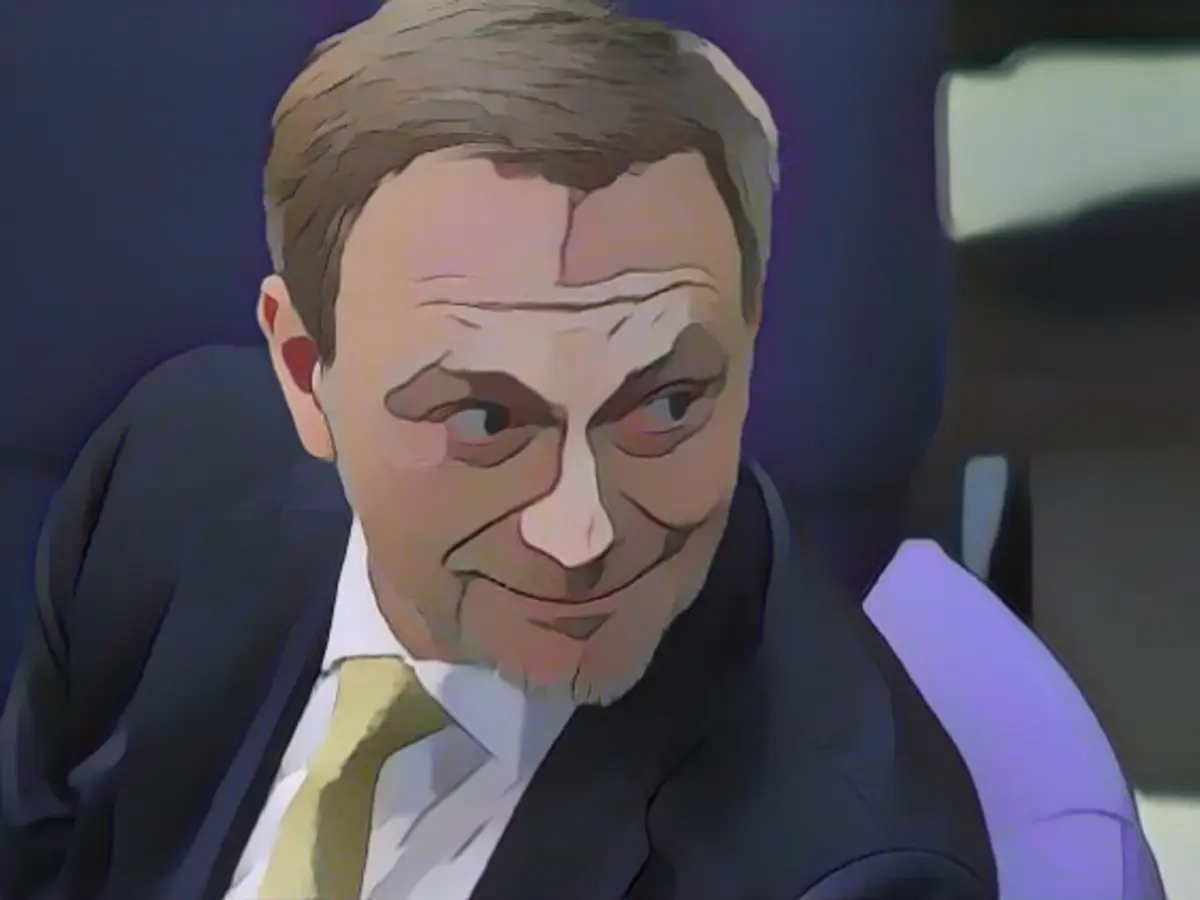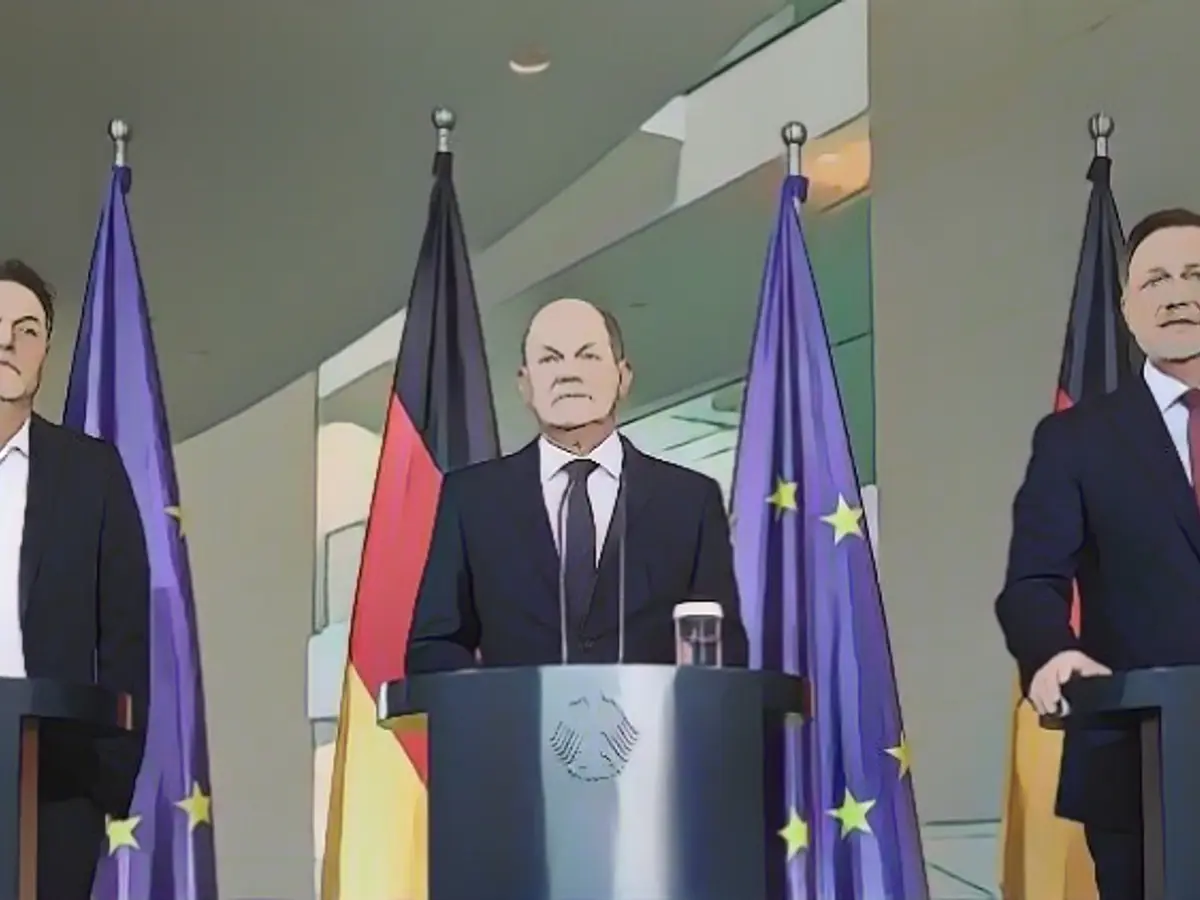Green Partying for Debt Brake Reform
The Federal Constitutional Court's financial straightjacket is giving Germany's government a financial twist. The Greens and SPD are now advocating for suspending or revising the debt brake. The CDU/CSU, however, is furious.
Recently, the Federal Constitutional Court's budget ruling imposed a stiff financial leash on the German government. As a result, the Greens are clamoring for a reform of the debt brake to pave the way for more investment projects. Katharina Dröge, head of the Greens' parliamentary group in the Bundestag, said in Berlin's "Tagesspiegel" that the debt brake is "economically ill-conceived". It restricts essential investments and is "a burden on Germany as a business location" in its current form. Dröge added that the debt brake's rigidity is not flexible enough to support individuals and businesses in difficult times.
The SPD seems to back these ideas. SPD leader Saskia Esken told Funke Mediengruppe newspapers over the weekend that she'd still advocate for suspending the debt brake in 2023 and 2024 due to a continuing crisis. She asserted that the climate change, digitalization, and demographic challenges span fiscal years, making a broader debt brake reform unavoidable.
The FDP, however, is hesitant. FDP's financial policy spokesperson, Markus Herbrand, stated that improvements will be made "where the ruling can impact current budget discussions". Herbrand was emphatic, however, in rejecting tax increases or additional debt to fund any shortfalls.
FDP Secretary-General Bijan Djir-Sarai concurred, stating in the "Tagesspiegel" that the Karlsruhe judgment should invigorate the coalition to strengthen compliance with the debt brake. But he left the specifics of such a strengthening plan vague.
The CDU/CSU has issued another warning. The CDU/CSU's budget experts warned the coalition against implementing these new plans, declaring an emergency for the current fiscal year and suspending the debt brake once again. CDU/CSU budget spokesperson Christian Haase told the Funke Mediengruppe newspapers that the only emergency is "a political one caused by the federal government itself".
Natural Disasters, Political Showdown, and Economic Challenges
In response to the Federal Constitutional Court's ruling, the debate on the debt brake has ignited a heated discussion within the traffic light coalition. The Greens, with their emphasis on necessary investments and flexibility, believe the debt brake hinders essential investments in critical areas like climate change and digitalization during tough times. The FDP, however, is hesitant, advocating for fortifying the debt brake rather than relaxing it or suspending it, fearing that doing so could lead to fiscally irresponsible behavior. The CDU/CSU fiercely opposes any relaxation of the debt brake, warning against an economic emergency.
The Fiscal Justice League
Economic Downturns: The debt brake's rigid stance against government borrowing in the face of economic downturns can challenge a government's capacity to stimulate demand. This is particularly critical in times of crises, like the COVID-19 pandemic, where higher spending is vital to support the economy.
Investment Needs: Germany is confronted with significant investment requirements across sectors, including education, digitalization, energy, infrastructure, and defense. The debt brake's constriction on fiscal policy limits the government's initiative to invest in these crucial segments, which are necessary for long-term growth.
Competitiveness and Growth: Modifying the debt brake might facilitate more investment, potentially benefiting competitiveness and capital markets, improving conditions in high-demand sectors, and potentially stimulating growth.
The Prudence Patrol
Fiscal Discipline: The debt brake is intended to enforce financial discipline and prevent excessive borrowing, aiming to prevent destabilization in the economy. Relaxing or suspending the debt brake may potentially result in a lack of fiscal responsibility.
Constitutional Constraints: The Federal Constitutional Court's ruling underlines the importance of ensuring the debt brake maintains constitutional safeguards, ensuring borrowing serves specific purposes, and leading to realistic repayment plans. The debt brake must adhere to these constraints to avoid financial instability.
Preventing Abuse: There's a risk that suspending the debt brake could be exploited as a means to circumvent fiscal rules, particularly during crises. This could lead to uncontrolled borrowing and financial instability.








